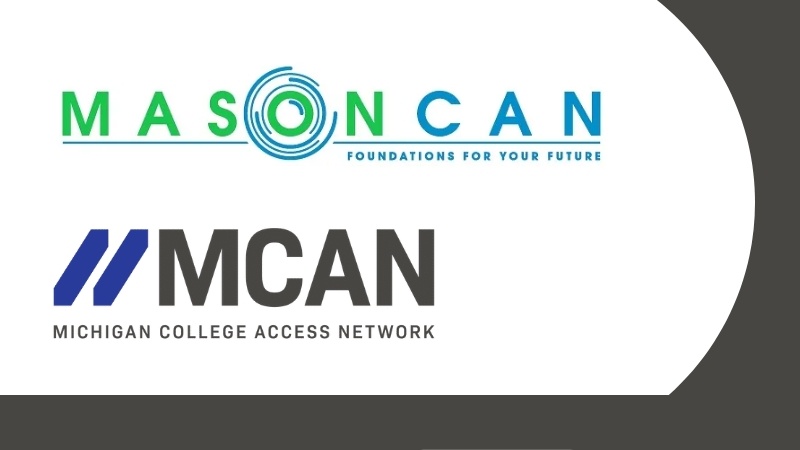
LANSING, Mich. — Michigan College Access Network (MCAN) has awarded Mason County College Access Network a $60,000 Implementation Grant to be used over the next two years. This grant will support Mason County CAN’s collaborative efforts to increase county-wide FAFSA completion to 75% or greater and to develop a communication strategy focused on the importance of college.
Since 2016, Mason County CAN has been working with local educational institutions, business leaders and community organizations to improve access to postsecondary education and build a college-going culture.
“Local college access networks like Mason County CAN play critical roles in coordinating programs, services and resources that lower barriers preventing students from pursuing postsecondary education,” said Ryan Fewins-Bliss, MCAN executive director. “This grant was awarded to Mason County CAN based on its ongoing development of a strong, community-focused college access network dedicated to cross-sector systems change that prioritizes low-income students, first-generation college-going students and students of color. We are proud to support its work to help Michigan reach Sixty by 30.”
The grant funding will allow Mason County CAN to provide organizations outside of K-12 education with FAFSA completion training. By equipping financial services, human resources and nonprofit professionals with FAFSA completion support skills, the larger community can be engaged in the goal to reach 75% or greater FAFSA completion. Additionally, this funding will support expanded communication efforts around the value of college, which will be created in collaboration with regional stakeholders.
“This grant funding from MCAN is our first real opportunity to get the message to local communities that college attainment is affordable, available and a key to helping Mason County thrive,” said Jody Maloney, Mason County Promise Zone director and college access network specialist. “With the Mason County Promise now offered for up to six years after graduation, the launch of Michigan Achievement Scholarship and the proposed expanded age eligibility of Michigan Reconnect, potentially any Mason County resident without a degree or certificate could attain one tuition-free. That's a revolution in college access and economic opportunity, and we want to broadcast it.”
Communities that receive Implementation Grant funding from MCAN have successfully established a local college access network led by a cross-sector leadership team representing K-12, higher education, business, government, philanthropy and the nonprofit sector. During the two-year Implementation Grant, the network develops and executes a collaborative, data-driven strategic action plan focused on priority areas determined by the leadership team.
For questions about LCANs and Implementation Grant opportunities, contact Jamie Jacobs, MCAN deputy director, at jamie@micollegeaccess.org.
Funds will support FAFSA completion efforts and communication highlighting the value of college